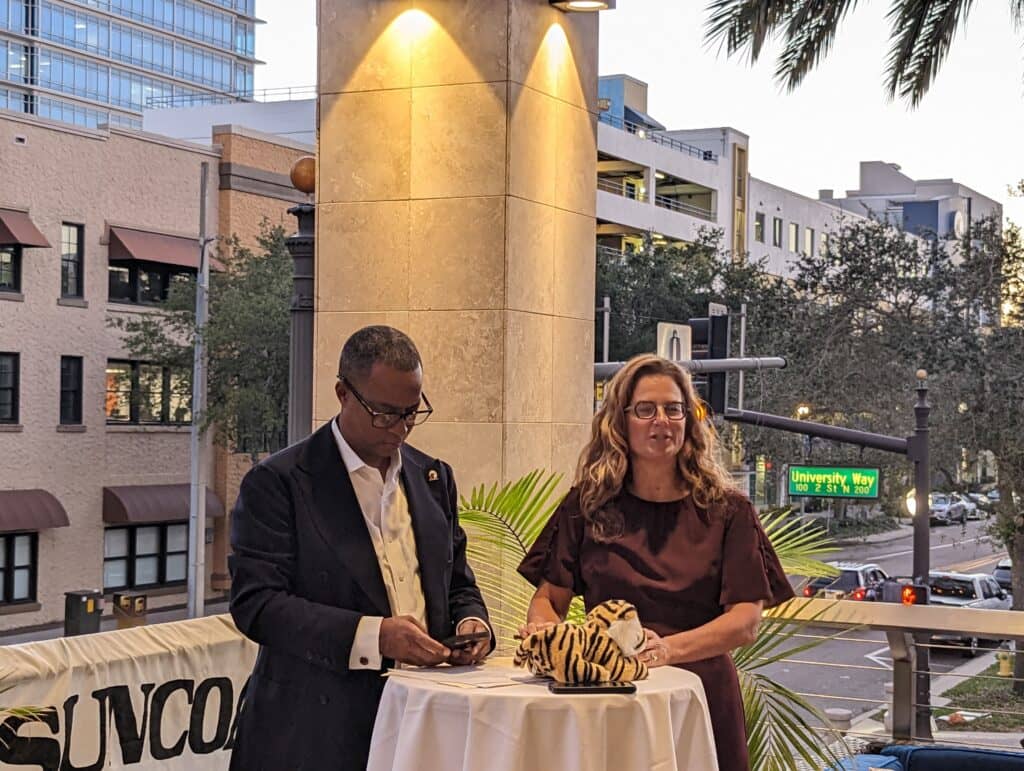Arthur Forrest loved growing up in the beauty of Toowoomba, but being a young gay man in regional Australia meant having to hide who he was. Not that it stopped the bullies.
Key points:
- LGBTIQ+ people are 5-11 times more likely to attempt self-harm or experience psychological distress
- University scholarships are on offer to LGBTIQ+ people who have experienced rejection
- The program also matches candidates with a mentor in the same field
Mr Forrest was “harassed mercilessly” throughout primary and high school for his sexuality, even though he was still working out what that was.
Supplied: Arthur Forrest
)Research by LGBTIQ+ Health Australia shows lesbian, gay, bisexual, transgender, intersex, queer, and other sexuality and gender diverse people (LGBTIQ+) are between five and 11 times more likely to attempt self-harm or experience psychological distress related to bullying and discrimination.
Mr Forrest said his experience of bullying was “damaging”.
“It’s something that I feel like I maybe should have grown from, but I still have those thoughts and feelings of guilt that I had when I was a child,” Mr Forrest said.
Despite his experience, the 25-year-old hopes to one day return to regional Queensland after finishing his medical laboratory science degree on the Gold Coast.
“It [Toowoomba] does have a lot of people who are quite close minded,” Mr Forrest said.
Education key to changing young lives
Mr Forrest’s career ambitions have been made easier thanks to a scholarship program helping LGBTIQ+ students who have grown up in environments where they have been rejected because of who they are and how they identify.
The Pinnacle Foundation’s managing director Andrew Staite said education was key to changing the lives of LGBTIQ+ Queenslanders.
“The scholarship program was established because there was a recognition that young LGBTIQ+ people, in many cases, were rejected by their families, by their faiths, and even by their communities,” he said.
The program also matches candidates with a mentor of the same gender, sexuality, and who works in the same field that the scholar is studying.
It has been invaluable support for Mr Forrest.
“It’s just an incredible opportunity,” he said.
Still barriers for LGBTIQ+ community
Mr Staite said the achievement of marriage equality in Australia opened doors for many young people.
However, many still do not feel they have the freedom to be open about their identity within workplaces and communities, particularly in regional areas.
ABC South West WA: Georgia Loney
)“What often happens is young people are driven away from these areas because they feel that there’s no one that they can identify with,” he said.
“We spend a lot of time trying to just raise awareness and encourage people to think ‘well hang on, if I’ve got youngish children, how would I be if my child told me one day that they were gay?'”
The foundation is encouraging young LGBTIQ+ Australians in regional, rural, and remote areas to apply for the 2022 round of scholarships which close this month.
“The scholarship is for any study that is undertaking studies full time at a public tertiary institution,” Mr Staite said.
Mr Forrest is encouraging other LGBTIQ+ people to apply.
“It is such an amazing opportunity for your future so please consider it,” Mr Forrest said.







